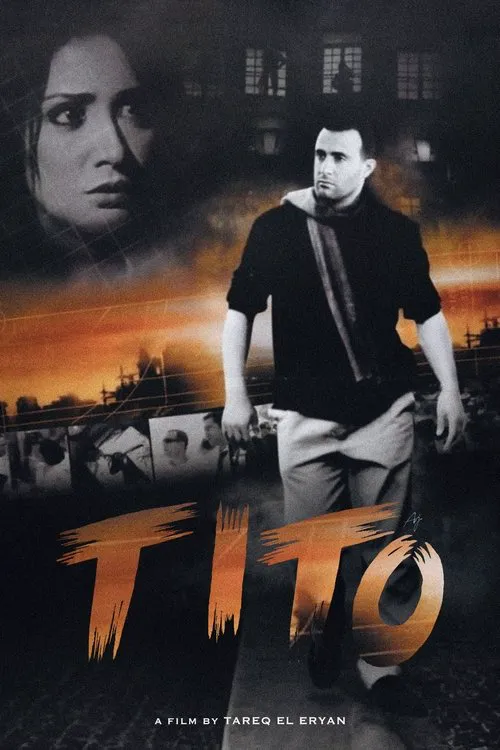Tito

Plot
Tito revolves around Khaled El-Sayed, a troubled individual haunted by his dark and troubled past. Once a skilled and accomplished driver, Khaled found himself entangled in the world of organized crime, ultimately leading to his imprisonment for a crime that, unbeknownst to the audience, was a mere ruse devised by the cunning underworld figures he had become involved with. Khaled, or 'Tito' as he is affectionately called by the local community, emerges from prison after serving a lengthy sentence, only to discover that his past has caught up with him once again. Tito, an ex-con who yearns to leave his sinful life behind, sets his sights on starting anew. This decision stems from a profound sense of regret for the mistakes he's made and a longing for a more genuine connection with those around him. However, Tito soon realizes that redemption is not as simple as turning one's life around. His actions are being closely monitored by the vengeful and cunning underworld figure, Al-Ard, known for his exceptional brutality and cunning nature. Al-Ard sees Tito as a means to exact revenge for past transgressions, using the ex-con to further his own objectives. Throughout the film, Tito finds himself facing off against not only the ruthless Al-Ard, but also his own self-doubt and the ghosts of his past. It becomes increasingly evident that Tito struggles with internal turmoil, grappling with the prospect of redemption and forgiveness. The film's portrayal of Tito's internal conflict masterfully delves into the complexities of the human condition, offering an honest and poignant portrayal of redemption's elusive nature. The supporting characters add depth to the narrative, fleshing out the world inhabited by Khaled and Al-Ard. One notable character is Tito's friend, an amiable and well-meaning man who seeks to guide Khaled towards a more law-abiding life. His character serves as a beacon of hope, symbolizing the goodness and kindness that Tito's circumstances seem to have pushed to the margins. Other characters, such as the cunning underworld figures and Tito's love interest, contribute to the overall complexity of the story. Tito's narrative effectively weaves together themes of redemption, self-discovery, and the cyclical nature of violence. Director Tarek El-Aryan's masterful storytelling raises questions about the possibility of change and whether an individual can truly leave their past behind. By crafting a multi-layered narrative that explores the human condition, Tito creates a gripping, intense, and thought-provoking cinematic experience. In comparison to other films in the same genre, Tito stands out for its nuanced and layered storytelling. Unlike its predecessor, Mafia, Tito eschews simplistic plotlines in favor of a more intricate and complex narrative. This narrative sophistication, combined with well-developed characters, raises the bar for Egyptian action cinema, solidifying its place as a pioneering work within the genre. Ultimately, Tito serves as a testament to the power of cinema to captivate and engage audiences, exploring the intricate tapestry of human emotions and experiences. This thought-provoking film leaves the viewer pondering the eternal questions of redemption, the cycle of violence, and the struggle for self-discovery, making it a compelling addition to the world of cinematic storytelling.
Ulasan
Rekomendasi




